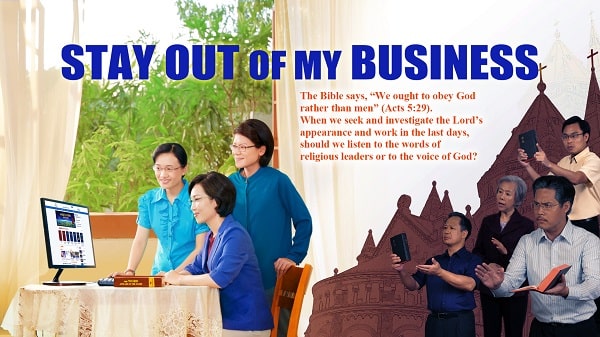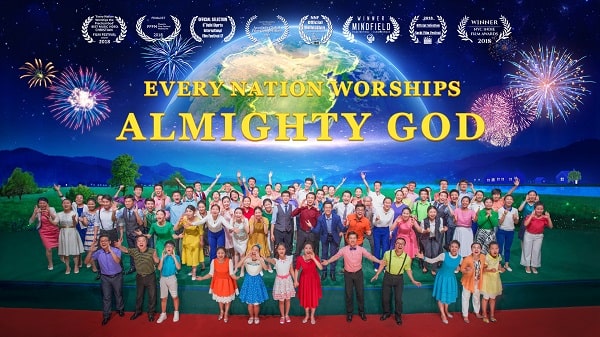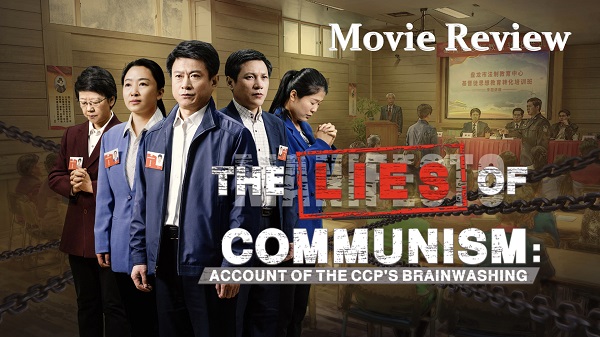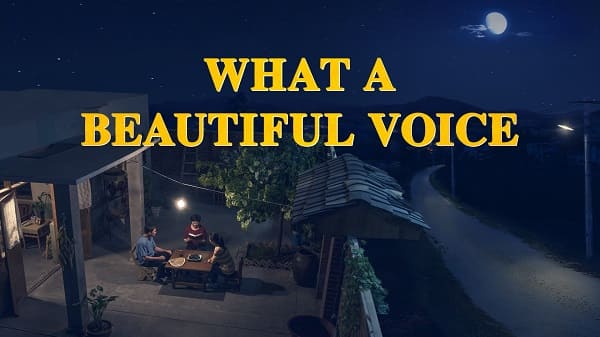Movie Review: Who’s Nailing God to the Cross Again?
—Watch Out for the Repetition of the History Two Thousand Years Ago
By Fang Wen
“Who’s Nailing God to the Cross Again?” At the sight of this movie’s title, I naturally associated it with the historical tragedy two thousand years ago when the Jewish chief priests, scribes, and Pharisees crucified the Lord Jesus. Could it be a movie about the Lord Jesus being crucified two thousand years ago? But how is the word “again” in the title explained? Curiosity and confusion drove me to click the movie.
The movie begins with the scene where Gu Shoucheng, standing on the pulpit, expounds the verses regarding how the Lord Jesus denounced the Pharisees with the “Seven Woes.” Listening to his interpretation, most brothers and sisters believe that they themselves aren’t among the Pharisees. Gu Shoucheng even confidently speaks of his experiences and regards it as the capital to show himself off—his imprisonment of twelve years for the Lord and the numerous hardships he suffered, so he is convinced that he will be raptured when the Lord returns, and that in no way will he be a Pharisee. Some believers also think that they will definitely get the Lord’s blessings under the leading of their pastor. However, their confidence is just confidence, and whether or not it could come true, the fact will tell. Later, when they talk about the Lord’s return at a co-workers’ meeting, the attendant two different viewpoints set off a heated argument. As the play develops, how the pastor and elder behave seems to be repeating the history.
The Repetition of the History: The Pharisees Reject the Return of Messiah
In the movie, When Gu Shoucheng learns that Yang Mingen has taken thirty believers to accept Almighty God’s work of the last days, he personally goes to stop them in order to “protect the flock.” Though all that he does outwardly is help and sustain believers, yet when he is alone in the park his soliloquy reveals his real thoughts. His behavior reminds us of the record in the Bible, “Then gathered the chief priests and the Pharisees a council, and said, What do we? for this man does many miracles. If we let him thus alone, all men will believe on him: and the Romans shall come and take away both our place and nation” (John 11:47–48). “Then from that day forth they took counsel together for to put him to death” (Jhn 11:53). At that time, the Pharisees were afraid that they would lose their status and livelihood if the Jewish people followed the Lord Jesus, so they plotted to kill Jesus. Comparing the present with the past, it’s not hard to see that the attitude of the pastors and elders represented by Gu Shoucheng toward the return of the Lord Jesus, is so similar to that of the Pharisees toward Messiah. …
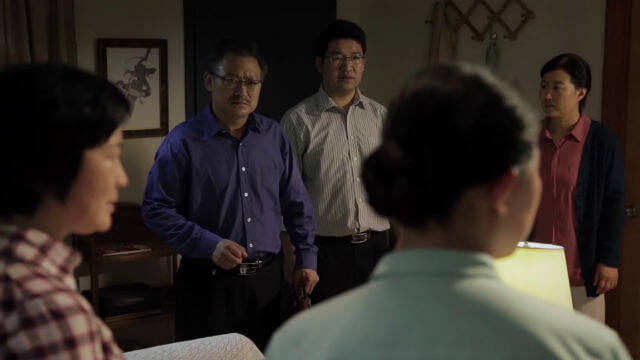
The Repetition of the History: The Pharisees Intentionally Find Fault With the Lord Jesus While Knowing the True Way
When Gu Shoucheng and several co-workers find more and more believers in their church have accepted Eastern Lightning, they gather to read the book The Word Appears in the Flesh from the Church of Almighty God. Instead of seeking the truth, they aim to discover loopholes and find fault, so they can refute and condemn Eastern Lightning. With this purpose, they read Almighty God’s word in turn. But after each passage they read, they feel Almighty God’s word carries authority and power, which seems like the Creator’s utterances to mankind. Gu Shoucheng says helplessly, “Almighty God’s words truly are formidable. They are really like a two-edged sword. Anyone who reads them has to be convinced. It seems that finding fault with Almighty God’s words is not a viable maneuver.” After their failure in finding fault in The Word Appears in the Flesh, they apply the rumors the Chinese Communist Party spreads to deceive believers. All that the pastors and elders do is the same as what the Pharisees did. Even though the Pharisees knew the Lord Jesus’ words are the truth, yet they tempted the Lord Jesus and found fault with Him, and eventually made up rumors to condemn Him, for the sake of protecting their own status and livelihood. It can be seen from this that the pastors and elders intentionally oppose it while knowing the true way.
The Repetition of the History: The Pharisees Wantonly Condemn and Blaspheme God
Since the pastors and elders fail to find fault with The Word Appears in the Flesh, they apply a baser means to resist Eastern Lightning—utilizing the rumors and falsified cases made by the CCP government to condemn and blaspheme Almighty God, and to attack the Church of Almighty God. When the believers inform him that what he does is contrary to the Lord’s way, and that the sin of directly resisting God and blaspheming the Holy Spirit is unforgivable in this life or in the afterlife, Gu Shoucheng not only doesn’t take it seriously, but he even said with disdain, “If Eastern Lightning is the work of the appearance of the Lord, then that sin is on me, and has nothing to do with our brothers and sisters.” Why does this word sound like the voice of the Pharisees who said, “His blood be on us, and on our children” (Matthew 27:25)? The Pharisees didn’t have a heart of fearing God, so they did something that opposed God, suffering God’s curse. Likewise, what consequences will these behaviors of the pastors and elders in the religious world bring themselves?

The Repetition of the History: The Pharisees Opposing God Are Subject to God’s Punishment
The final part of the movie is the Elder Wang’s death in a car accident on his way to arrest the witnesses from the Church of Almighty God, which drives Gu Shoucheng to live in an extreme panic and go insane. In treating the Lord’s return, these two persons, who have believed in the Lord for their whole lives and suffered much hardship, embark on the path of the Pharisees opposing God: They nail God to the cross again, incurring an irreparable evil result. The desolate scenes where the psychotic Gu Shoucheng repeats “Woe to me” seem like those where the Pharisees were fearful and uneasy in the earthquake and in the collapsed temple after they crucified the Lord Jesus. At this time, the stern words in the final song “God Wishes for More People to Gain His Salvation,” both warn those pastors and elders as Gu Shoucheng and Wang Sang, and point out the proper attitude to those who have been yearning for the Lord’s return. It really sets people thinking.
The history two thousand years ago recurs around us. We, born in the last days, have been eagerly expecting the return of the Lord. If the Lord comes back, we don’t actively seek or investigate, like Gu Shoucheng in the movie, but obstinately walk along the wrong way of the Pharisees, and even confidently believe that as long as we labor for the Lord, we will be raptured into the kingdom of heaven. Then isn’t this a very perilous matter? It seems that recognizing our path to avoid becoming the next Pharisee is crucial when faced with the Lord’s return.
You might be interested in: In Spiritual Warfare, “Good Servants” Show Their True Colors


